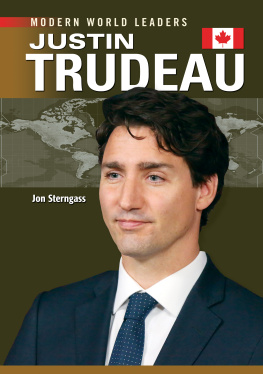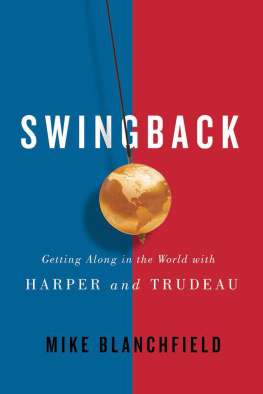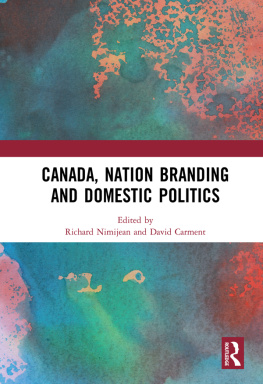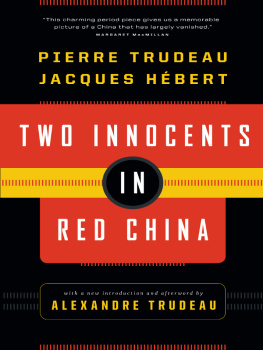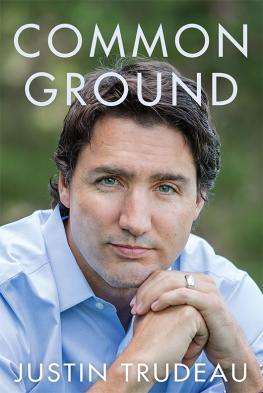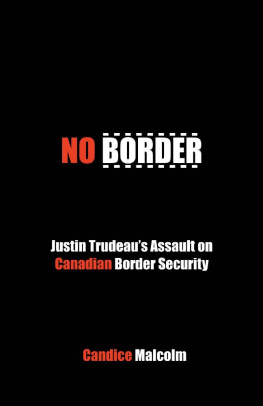B y coincidence, Justin Trudeau was back at Montreals Collge Jean-de-Brbeuf on the night of February 27, 2019.
Brbeufnamed for the French missionary and martyrwas founded by the Jesuits in 1928, built on farmland at the foot of Mount Royal. Its motto became Viam veritatis elegi, or I chose the path of truth. Almost from the start, it was considered the most prestigious college in Quebec, historians Max and Monique Nemni later wrote in a biography of its most famous alumnus.
Pierre Trudeau started there in 1932, at the age of twelve, and graduated eight years later with top marks in arts and science. In 1984, after retiring from a career in politics, Pierre moved back to Montreal and enrolled his eldest son, Justin. It was there Justin learned Latin, debated sovereignty for Quebec, was teased about his parents divorce, made lifelong friends, became an awkward teen, struggled to stay disciplined and began to contend with the weight of his last name.
More than three decades later, space at the school was rented to host a celebration of the Liberal Partys success in the recent by-election in the riding of Outremont. That win, two nights earlier, had avenged a symbolically powerful by-election loss there to the New Democratic Party and Thomas Mulcair in 2007. Mulcairs victory presaged the Orange Wave that very nearly drowned the Liberal Party in 2011. But Trudeaus Liberals had bested Mulcairs NDP in 2015, and now Rachel Bendayan, the Liberal candidate, had taken back Outremont. To mark the accomplishment, Trudeau was scheduled to greet and thank Liberal volunteers at 7 p.m. on this Wednesday night. His daughter had come along to check out her fathers alma mater. For members of the media, it was to be a photo opportunity only.
Then, shortly after 6 p.m., a note went out from the Prime Ministers Office. Trudeau would be speaking to reporters at 8 p.m. As had become readily apparent, there was something he needed to address.
Good evening, everyone. What a pleasure to be back in Outremont this evening, the prime minister began, standing in front of a podium set up inside the schools renovated old chapel. I have some very good memories of this place. Im very pleased to be able to show my former school to my daughter, who is here this evening. After some kind words for Bendayan and the Liberal volunteers in Outremont, some of whom stood in rows behind him, Trudeau moved to the matter at hand.
My friends, this has been a difficult few weeks. And its been difficult because weve had internal disagreements.
This was putting it mildly.
There was a lot going on for Justin Trudeaus government in that fourth week of February 2019. On Tuesday, for instance, Statistics Canada reported that the overall poverty rate had declined to 9.5 percent in 2017. As compared to 2015, 278,000 fewer children were living in poverty, a development credited, in part, to the Trudeau governments move to reform and bolster the system of federal child benefits.
On Thursday, the Liberal government would table legislation to allow for the transfer of child welfare services to Indigenous communities, a response to concerns that infants were being unnecessarily and recklessly separated from their Indigenous mothers; Alberta premier Rachel Notley would appear before a Senate committee to register her concerns about federal plans to overhaul the environmental assessments of major resource projects; and Trudeau would announce Canadas participation in a new space station that would orbit the moon. On Friday, as part of the governments move to legalize cannabis, legislation would be introduced to expedite pardons for Canadians who had been previously convicted of possessing marijuana.
These were big things, hard things, things that can shape a country and define the legacy of a prime minister and his government.
But seemingly none of it mattered as much as what had happened in the late afternoon and early evening of that Wednesday, between 3:50 and 7:20 p.m. It was then that Jody Wilson-Raybould, the former justice minister and attorney general of Canada, finally testified publicly before the House of Commons justice committee, the star witness in a series of hearings launched amid allegations of attempted political interference in the prosecution of SNC-Lavalin, the Montreal-based engineering firm. Over the course of those three and a half hours, she implicated a half-dozen of the most senior officials in the Trudeau government, including Gerald Butts, Trudeaus former principal secretary and close friend; Katie Telford, Trudeaus chief of staff; and Michael Wernick, the clerk of the Privy Council. Trudeau himself had been involved in one of the meetings Wilson-Raybould recounted.
Wilson-Raybould had resigned from cabinet eleven days earlier. Butts had quit six days after that. Minutes after Wilson-Raybould finished her testimony to the justice committee, Conservative leader Andrew Scheer strode into the foyer of the House of Commons and solemnly declared that Trudeau should resign. The Globe and Mails lead political columnist would declare Trudeau had lost the moral mandate to govern. NDP leader Jagmeet Singh, showing relative restraint, called for a public inquiry.
A political career born of great potential now faced a moment of great peril.
It was important for Jody Wilson-Raybould to speak openly at the justice committee today, and Im glad she had the chance to do so, Trudeau said at Brbeuf. I strongly maintain, as I have from the beginning, that I and my staff always acted appropriately and professionally. I therefore completely disagree with the former attorney generals characterization of events.
A reporter asked Trudeau if he thought he should resign.
Canadians, he said, will have a very clear choice in a few months time about who they want to be prime minister of this country and what party they want to form government.
Nearly four years earlier, their choice had been Trudeau. A candidate of great promise had become a prime minister of a great many promises. And then Donald Trump became president of the United States, the entire world order seemed to be upended and suddenly everything felt precarious. All the while, the planet kept burning.
The boy with the famous last name became a prime minister whose storythis storywould be framed by promise and peril; by big questions, lofty ideals, complicated answers, odd failures and high stakes.
The following pages are an attempt to take stock of all that might be said to have weighed on that moment at Brbeuf on the last Wednesday in February 2019.
* * *
S IX AND A HALF years earlier, on a stage in a different part of Montreal: Make no small dreams, he said, they have not the power to move the soul.
Maybe only the first-born son of Pierre Trudeau would have chosen to start this way. Maybe only the first-born son of Pierre Trudeau would have dared. It was confident, ambitious, perhaps a bit cheesy, more than a little ostentatious and potentially silly.
Justin Trudeau had added the line to the speech himself. It was a quote he had come across several years earlier, when he was pursuing a masters degree in environmental geography. His thesis supervisor was a professor named Peter Brown, and Brown had been looking to establish an international institute for the environment in Montreal. Trudeau remembers reading the quote at the top of the prospectus that Brown prepared for the project. And it just stuck with me, he says, snapping his fingers. I really... I really liked that idea.
Trudeau didnt finish that degree in environmental geography. His studies were put aside when he decided to seek public office as the MP for Papineau. But Trudeau at least came away from the program with a bit of inspiration.


